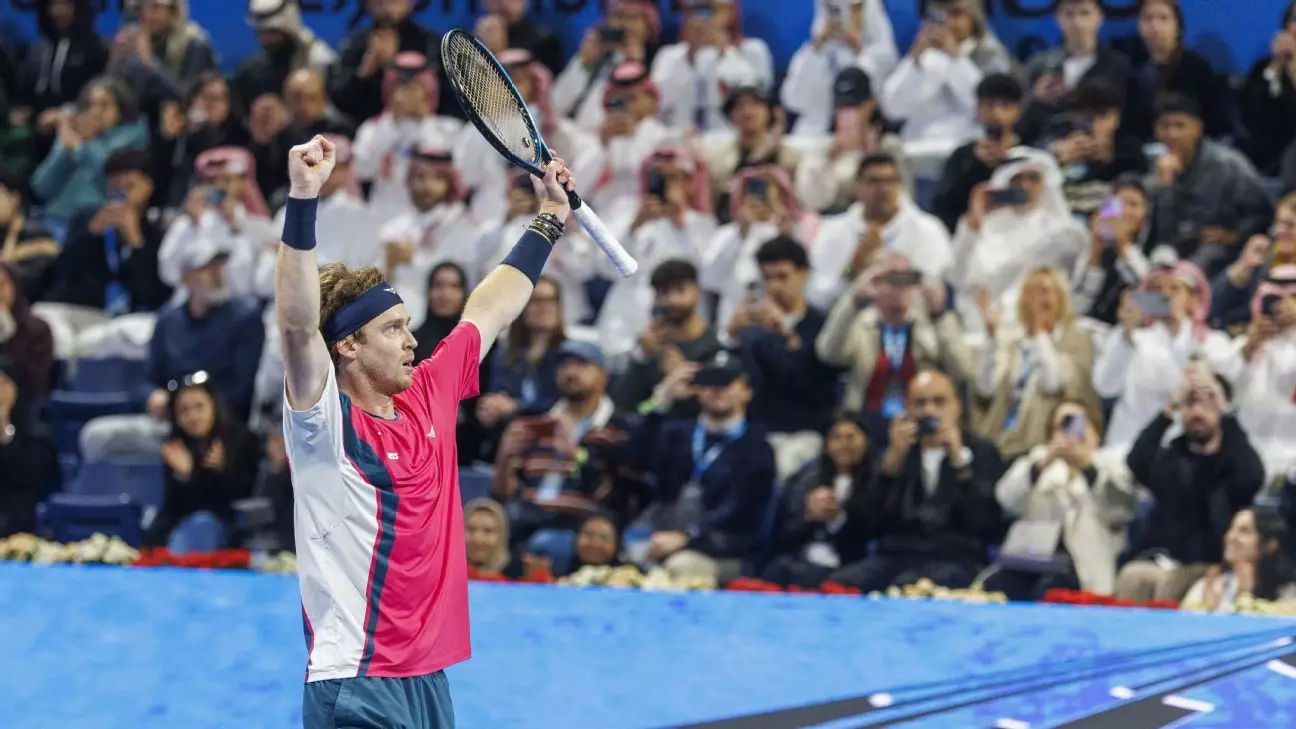Andrey Rublev, currently ranked ninth in the world, has publicly tackled his mental health struggles—a subject often shrouded in stigma within the sporting community. The 27-year-old Russian recently opened up about his experiences, highlighting significant conversations with two-time Grand Slam champion Marat Safin as pivotal moments in his journey towards emotional stability. For years, the intense pressures of professional tennis weighed heavily on him, leading to erratic emotions during matches, which were sometimes evident in on-court outbursts. However, after a triumphant victory at the Qatar Open, Rublev finds himself approaching the game with newfound serenity, a departure from the anxiety that once clouded his competitive spirit.
Rublev’s past experiences, particularly his distressing default at last year’s Dubai tournament, cast shadows over his career. During a critical semifinal match, he faced disqualification after a controversial call and allegations of profanity directed at a line judge. This incident, coupled with ongoing internal struggles—likened to being trapped in a cycle of self-doubt and confusion—took a toll on Rublev. “I was in a loop, lost with myself,” he candidly admitted, revealing the emotional turmoil that persisted for years. Such graphic descriptions underline the often invisible battles athletes face, a phenomenon that speaks volumes about the need for open dialogue regarding mental health in sports.
Rublev’s path to recovery took a significant turn in July when he sought guidance from Safin, a fellow Russian and former world No. 1 known for his volatile on-court demeanor. Safin’s insights became a beacon of hope for Rublev, illuminating pathways to self-awareness and emotional regulation. “He made me understand myself,” Rublev stated, crediting their discussions as a form of catharsis that allowed him to pivot from a place of despair to one of hope. The essence of their dialogue served not only as a therapeutic outlet but also as a platform for Rublev to redefine his approach to competition.
While Rublev admits to not feeling particularly happy, he acknowledges a neutral state of mind—free from anxiety, and depression. This psychological neutrality marks a significant milestone in his mental health journey. He emphasized the importance of establishing a stable emotional base as a foundational step towards more profound changes in his mental landscape. As he prepares to commence his campaign in Dubai against French qualifier Quentin Halys, it is clear that Rublev’s mindset has shifted in a transformative way.
In a world where mental health issues among athletes are increasingly discussed, Rublev’s story serves as a reminder of the ongoing struggles many face, regardless of success or talent. He embodies a narrative of resilience, encouraging not only himself but also others to seek help and find balance in their lives. With mental clarity and a more relaxed approach, Rublev is ready to revert the focus back to his game, potentially paving the way for further successes on the ATP tour. As he steps onto the court in Dubai, sporting a neutral mindset, fans and aspiring athletes alike will undoubtedly watch with renewed hope and admiration.


Leave a Reply